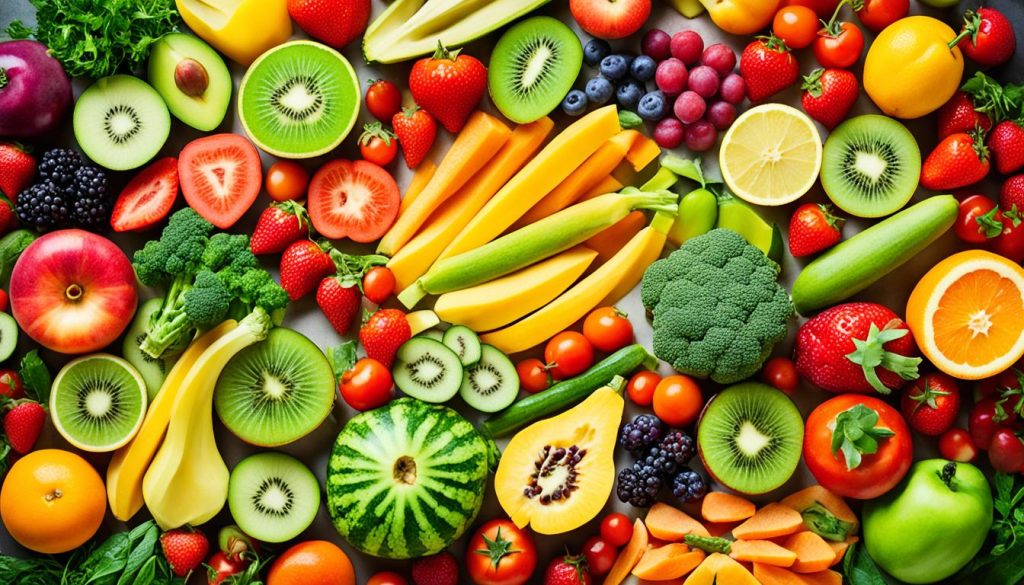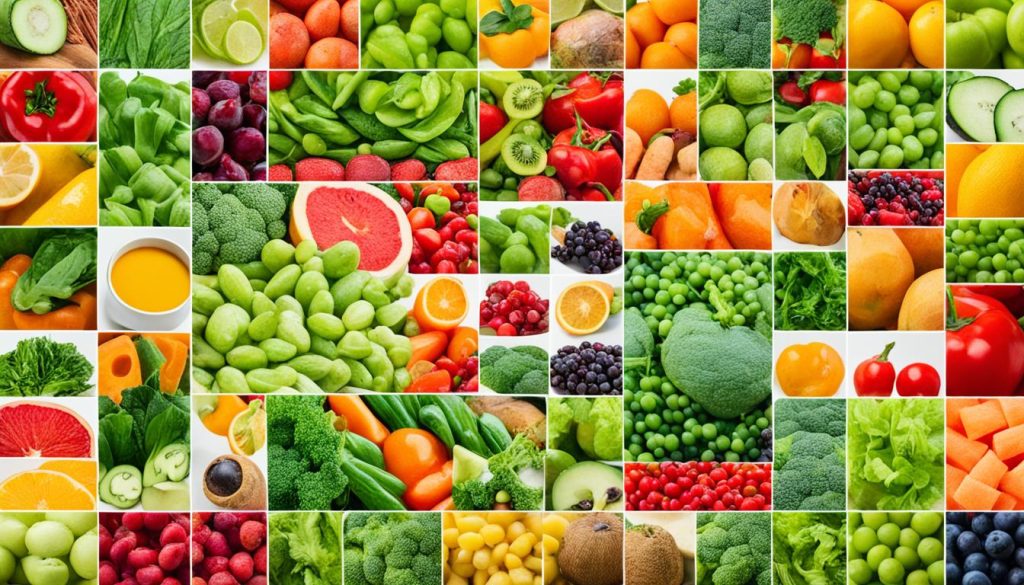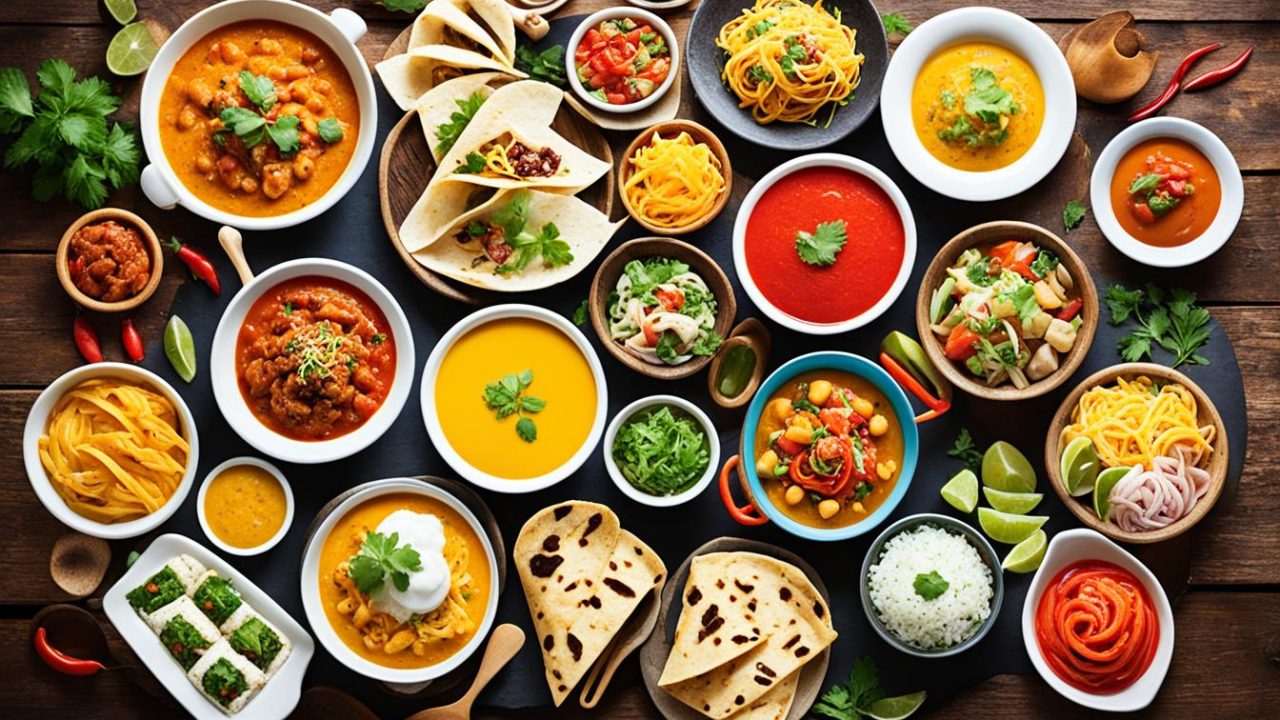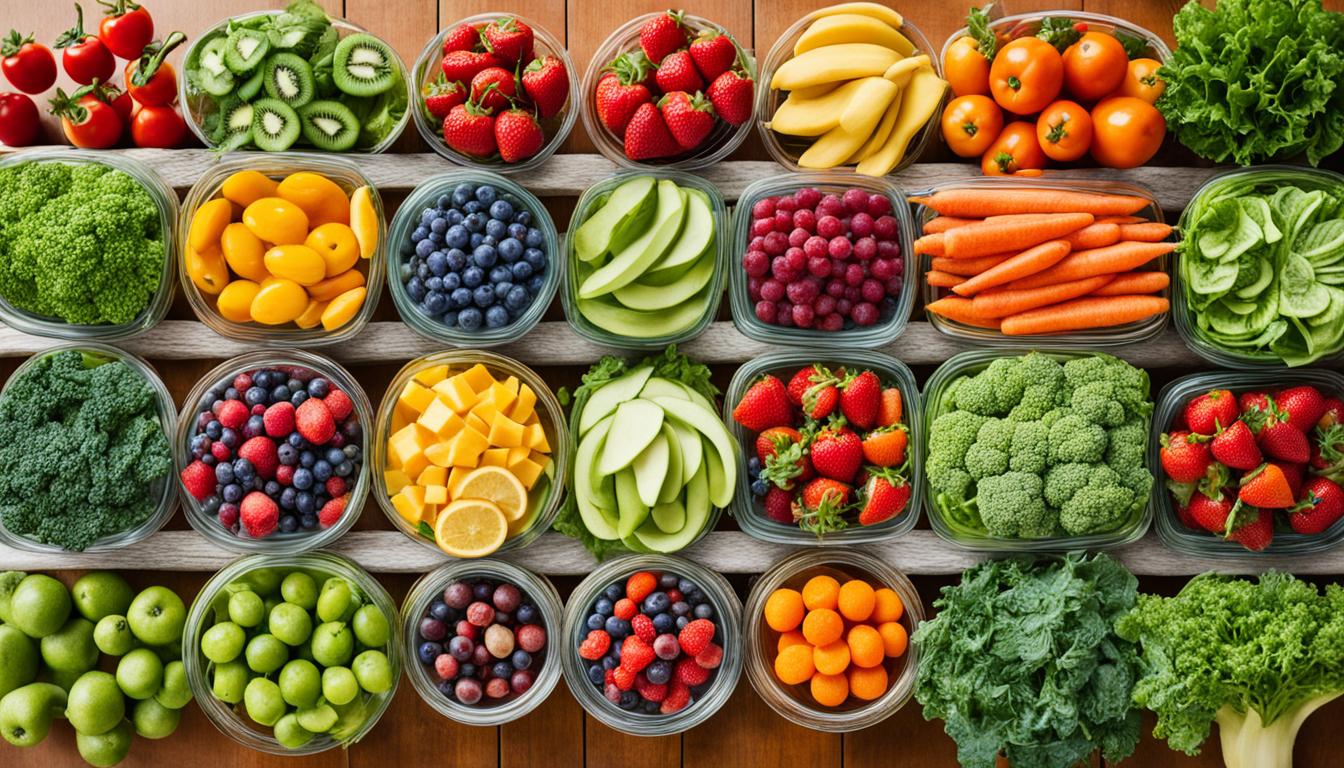This comprehensive guide will take you on a journey to discover the world of delicious and nutritious food choices. Whether you’re looking to improve your overall health, explore new culinary adventures, or simply savor the flavors of high-quality ingredients, this article has something for everyone. We’ll dive into the importance of embracing a variety of wholesome food options, uncover the diverse flavors and cuisines that can nourish both your body and mind, and provide practical tips for mindful eating. Get ready to embark on a flavorful and transformative food experience.
Key Takeaways
- Discover the world of delicious and nutritious food choices
- Explore the importance of embracing a variety of wholesome food options
- Uncover the diverse flavors and cuisines that can nourish your body and mind
- Learn practical tips for mindful eating to enhance your overall well-being
- Embark on a flavorful and transformative food experience
Embracing a Variety of Wholesome Food Options
Incorporating a diverse range of nutrient-dense foods into your dietary regimen is essential for maintaining optimal health and wellness. These food options are brimming with essential vitamins, minerals, antioxidants, and fiber, providing your body with the vital nourishment it needs to thrive.
From vibrant fruits and vegetables to hearty whole grains, lean proteins, and healthy fats, each food group offers unique benefits that can support your overall well-being. By embracing a varied and balanced approach to eating, you’ll not only satisfy your taste buds but also fuel your body with the essential nutrients it craves.
“A varied diet rich in whole, nutrient-dense foods is the foundation of a healthy lifestyle.” – Dr. Sarah Johnson, Registered Dietitian
Incorporating a diverse range of wholesome food options into your daily routine can have far-reaching positive impacts on your physical and mental well-being. Explore the bountiful possibilities and unlock the power of nourishment to elevate your overall health and vitality.

Food: Exploring Diverse Flavors and Cuisines
The world of food is a vibrant tapestry of diverse flavors and culinary traditions waiting to be explored. Whether you’re a seasoned foodie or a curious home cook, delving into the rich cultural heritage of different cuisines can unlock a treasure trove of new and exciting taste experiences.
From the aromatic spices of Indian curries to the umami-packed sauces of Japanese cuisine, each cuisine offers a unique flavor profile that can transport your taste buds to different corners of the globe. By embracing this culinary diversity, you’ll not only expand your palate but also gain a deeper appreciation for the art of gastronomy and the role food plays in shaping cultural identities.
“The true essence of a culture can be found in its cuisine.”
Whether you’re exploring the vibrant flavors of Mexican tacos, the soulful comfort of homemade Italian pasta, or the delicate balance of Southeast Asian stir-fries, each cuisine offers a unique window into the traditions, values, and histories of the people who created them.

By embracing this culinary diversity, you’ll not only broaden your palate but also deepen your understanding of the world around you. So, embark on a gastronomic journey and discover the rich tapestry of flavors that the world of food has to offer.
Mindful Eating: Nourishing the Body and Mind
Embracing the principles of mindful eating can unlock a world of nourishment that extends far beyond simply fueling your body. This holistic approach to food invites you to be present, attentive, and intentional with every bite, recognizing the profound impact that your dietary choices can have on your physical and mental well-being.
At the heart of mindful eating lies a deeper connection with the food you consume. By slowing down, savoring the flavors and textures, and truly appreciating the origin and preparation of your meal, you can foster a more harmonious relationship with nutrition. This heightened awareness can not only enhance the pleasure and satisfaction you derive from each eating experience but also empower you to make more informed and fulfilling dietary decisions.
Incorporating mindful eating practices into your daily routine can have a transformative effect on your overall health and wellness. From supporting digestive function and boosting nutrient absorption to reducing stress and promoting mindfulness, the benefits of this approach to nourishment are far-reaching. Unlock the power of mindful eating to nourish your body, mind, and soul, and embark on a journey of culinary and personal enlightenment.
FAQ
What are some examples of wholesome, nutrient-dense foods?
Some examples of wholesome, nutrient-dense foods include fresh fruits and vegetables, whole grains, lean proteins, and healthy fats like nuts, seeds, and avocados. These foods are packed with essential vitamins, minerals, antioxidants, and fiber that can support overall health and well-being.
How can I incorporate diverse flavors and cuisines into my diet?
To explore diverse flavors and cuisines, try new recipes from different cultural traditions, visit local ethnic restaurants, or experiment with unfamiliar ingredients in your own cooking. Embracing the rich culinary heritage of various regions can unlock a world of new taste experiences and expand your appreciation for the art of gastronomy.
What are the benefits of mindful eating?
Mindful eating can provide a range of benefits, from supporting physical health to enhancing emotional and cognitive well-being. By being present and attentive during the act of consuming food, you can better savor the flavors, textures, and nourishment, leading to a more harmonious relationship with food and a deeper sense of satisfaction.
How can I make healthier food choices when dining out?
When dining out, look for menu items that feature wholesome, minimally processed ingredients. Consider ordering grilled, baked, or steamed options instead of fried dishes, and opt for side salads or vegetables instead of heavy carbohydrates. Asking about the sourcing and preparation of the food can also help you make more informed and nutritious choices.
What tips can you provide for meal planning and preparation?
Some helpful tips for meal planning and preparation include: making a weekly grocery list to ensure you have all the necessary ingredients on hand, batch-cooking or meal prepping on the weekends to save time during the week, and experimenting with new recipes and cooking methods to keep your meals interesting and varied. Focusing on whole, unprocessed foods and incorporating a diverse range of fruits, vegetables, and lean proteins can also help you create balanced and nutritious meals.






